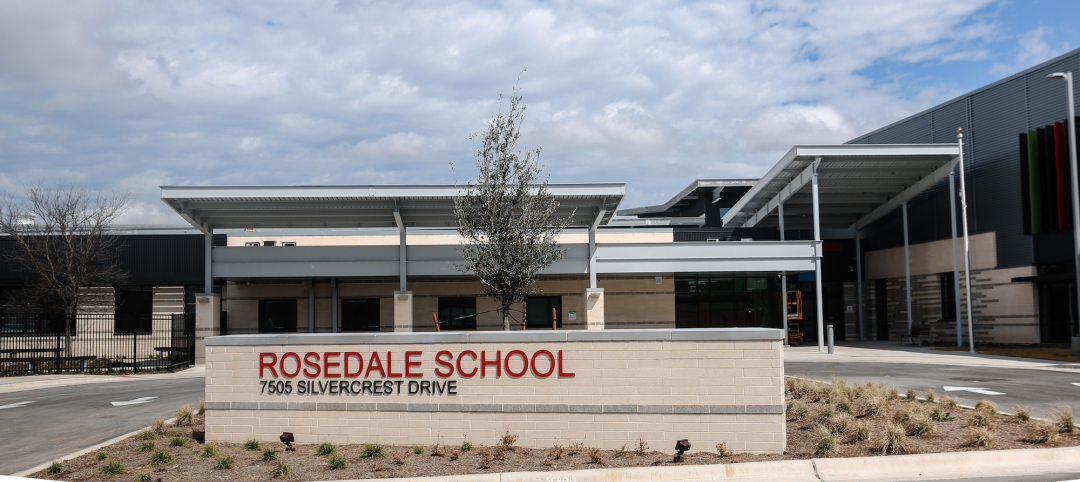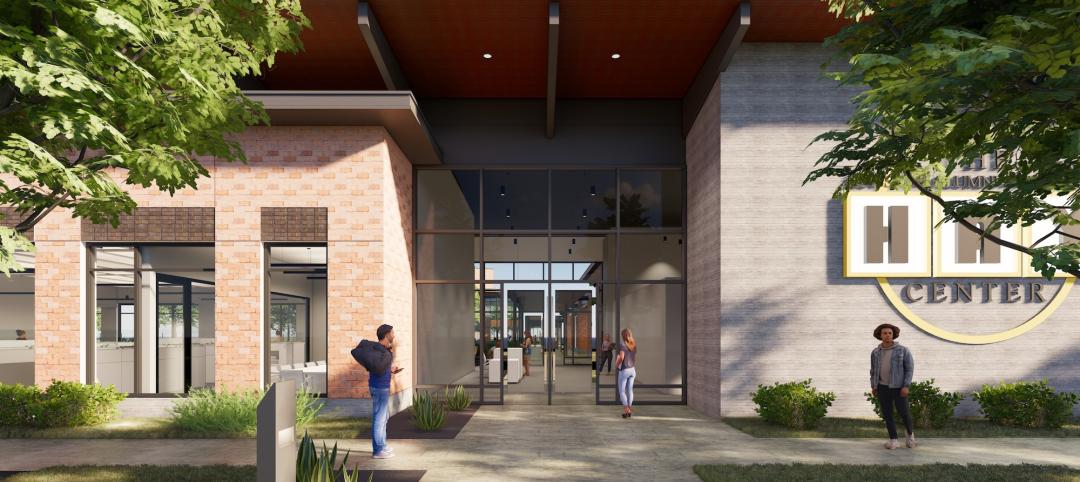The AIA and Architecture for Humanity are pleased to announce the grant recipients for the 2012 Disaster Response Plan Grant. Awards totaling $10,000 will help each group implement their locally driven preparedness project in the second half of the year.
The Disaster Grant Program is part of the Disaster Resiliency and Recovery Program, which coordinates the organizations’ advocacy, education and training to help architects make effective contributions to communities preparing for, responding to and rebuilding after disaster.
The grant recipients are:
- Architecture for Humanity D.C. Chapter Disaster Response Project
The project aims to engage D.C. architects in preparing the District’s shelters, helping with post-disaster damage assessment, and allowing architects to serve as leaders in all the communities of our nation’s capital. It also aims to engage D.C. architects in documenting and learning lessons from past disasters. - Washington State Disaster Preparedness and Response (DPR)
A new Intrastate Mutual Aid law in the state allows architects, engineers and code officials to receive training and integrate with emergency management, but many of the details are yet to be determined. The DPR will advocate, educate, and train these design professionals to help implement the new law and prepare communities for disaster. - NYC Safety Assessments Trainings
In partnership with AIANY and the NYC Office of Emergency Management (OEM), Architecture for Humanity NY (AFHny) will develop a disaster response network and offer periodic trainings in the post-disaster Safety Assessment Program (SAP). - Disaster Assistance Coordination Network in Maryland
AIA Baltimore, in partnership with the Architecture for Humanity Baltimore chapter, plans to establish an active Disaster Assistance Program for the state of Maryland. This group will liaise between the state emergency management agencies, AIA, and other emergency management professionals in the region to develop plans and programs to address disaster preparedness and recovery. - Illinois Architects’ Emergency Management/Disaster Response Workshop
The workshop will have key leaders of the AIA and Architecture for Humanity work collaboratively to develop an industry-specific comprehensive statewide disaster response plan in an exercise environment working alongside emergency management officials. In addition, develop a post-workshop toolkit for the education of our members in the architect’s role in emergency management in Illinois.
More information will be available soon on the Disaster Resiliency and Recovery Program website, ArchitectsRebuild.org. +
Related Stories
Market Data | Aug 1, 2023
Nonresidential construction spending increases slightly in June
National nonresidential construction spending increased 0.1% in June, according to an Associated Builders and Contractors analysis of data published today by the U.S. Census Bureau. Spending is up 18% over the past 12 months. On a seasonally adjusted annualized basis, nonresidential spending totaled $1.07 trillion in June.
Healthcare Facilities | Aug 1, 2023
Top 10 healthcare design projects for 2023
The HKS-designed Allegheny Health Network Wexford (Pa.) Hospital and Flad Architects' Sarasota Memorial Hospital - Venice (Fla.) highlight 10 projects to win 2023 Healthcare Design Awards from the American Institute of Architects Academy of Architecture for Health.
Office Buildings | Aug 1, 2023
Creating a nurturing environment: The value of a mother’s room in the workplace
Since becoming an architect, Rebecca Martin of Design Collaborative has drawn a mother’s room into numerous projects. But it wasn't until she became a mom that she fully appreciated their importance in the workspace.
Digital Twin | Jul 31, 2023
Creating the foundation for a Digital Twin
Aligning the BIM model with the owner’s asset management system is the crucial first step in creating a Digital Twin. By following these guidelines, organizations can harness the power of Digital Twins to optimize facility management, maintenance planning, and decision-making throughout the building’s lifecycle.
K-12 Schools | Jul 31, 2023
Austin’s new Rosedale School serves students with special needs aged 3 to 22
In Austin, the Rosedale School has opened for students with special needs aged 3 to 22. The new facility features sensory rooms, fully accessible playgrounds and gardens, community meeting spaces, and an on-site clinic. The school serves 100 learners with special needs from across Austin Independent School District (ISD).
MFPRO+ New Projects | Jul 27, 2023
OMA, Beyer Blinder Belle design a pair of sculptural residential towers in Brooklyn
Eagle + West, composed of two sculptural residential towers with complementary shapes, have added 745 rental units to a post-industrial waterfront in Brooklyn, N.Y. Rising from a mixed-use podium on an expansive site, the towers include luxury penthouses on the top floors, numerous market rate rental units, and 30% of units designated for affordable housing.
Affordable Housing | Jul 27, 2023
Houston to soon have 50 new residential units for youth leaving foster care
Houston will soon have 50 new residential units for youth leaving the foster care system and entering adulthood. The Houston Alumni and Youth (HAY) Center has broken ground on its 59,000-sf campus, with completion expected by July 2024. The HAY Center is a nonprofit program of Harris County Resources for Children and Adults and for foster youth ages 14-25 transitioning to adulthood in the Houston community.
Hotel Facilities | Jul 27, 2023
U.S. hotel construction pipeline remains steady with 5,572 projects in the works
The hotel construction pipeline grew incrementally in Q2 2023 as developers and franchise companies push through short-term challenges while envisioning long-term prospects, according to Lodging Econometrics.
Sustainability | Jul 27, 2023
USGBC warns against building energy code preemptions, rollbacks
In a recent editorial, the USGBC cited a growing number of U.S. state legislators who are “aiming to roll back building energy code standards and/or preempt local governments from advancing energy-efficient building codes.”
Resiliency | Jul 27, 2023
'Underground climate change' can damage building foundations, civil infrastructure
A phenomenon known as “underground climate change” can lead to damage of building foundations and civil infrastructure, according to a researcher at Northwestern University. When the ground gets hotter, it can expand and contract, causing foundations to move and sometimes crack.

















